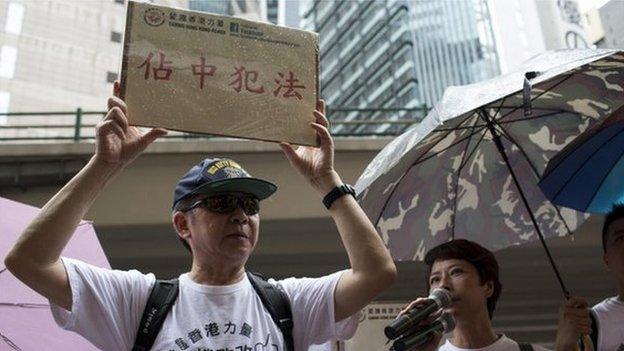Hong Kong outrage over Chinese subtitle switch
- Published
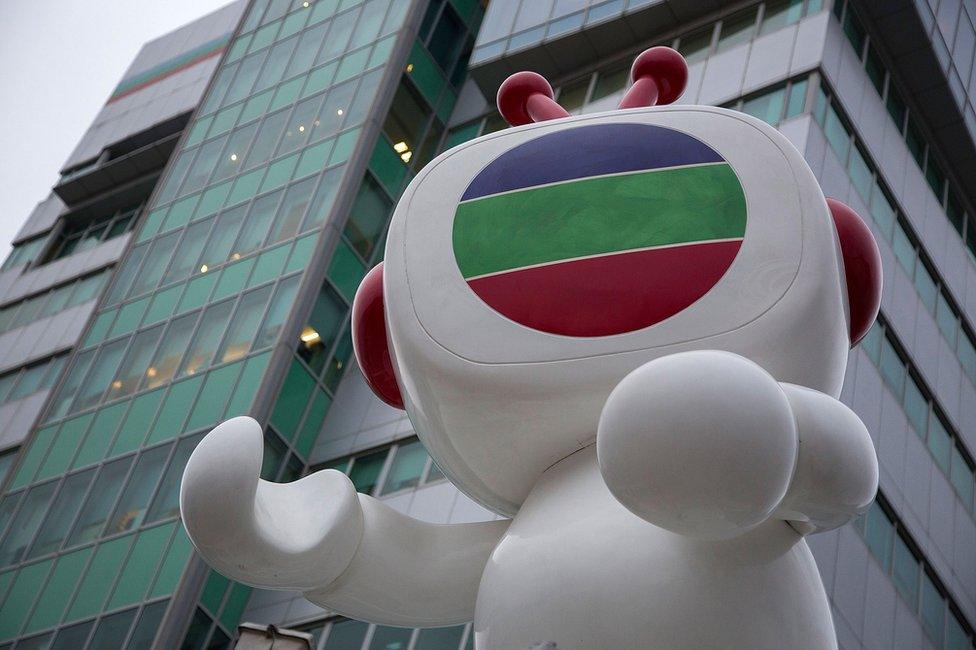
TVB, whose mascot is seen here outside its building in Hong Kong, is the city's largest broadcaster
Hong Kong officials received more than 10,000 complaints in three days after a popular TV programme began subtitling output in the Chinese characters associated with mainland China.
Hong Kong uses traditional Chinese script as opposed to the mainland's simplified characters.
The broadcaster, TVB, defended the move, saying Hong Kong is an international city.
The city has seen tensions over the perceived growing influence of Beijing.
The communications regulator said the complaints pertained to TVB's daily 40-minute Mandarin-language evening news programme.
"This new arrangement will offer our viewers more choice and better serve different audience needs," a spokesman said in a statement.
A commentary on the matter by the Chinese Communist Party's mouthpiece People's Daily called on Hong Kong to "not be so overly sensitive towards simplified script".
"Bringing political implications into this fight over traditional and simplified script, and contaminating it with hostile feelings, only creates an inexplicable rivalry," it added.
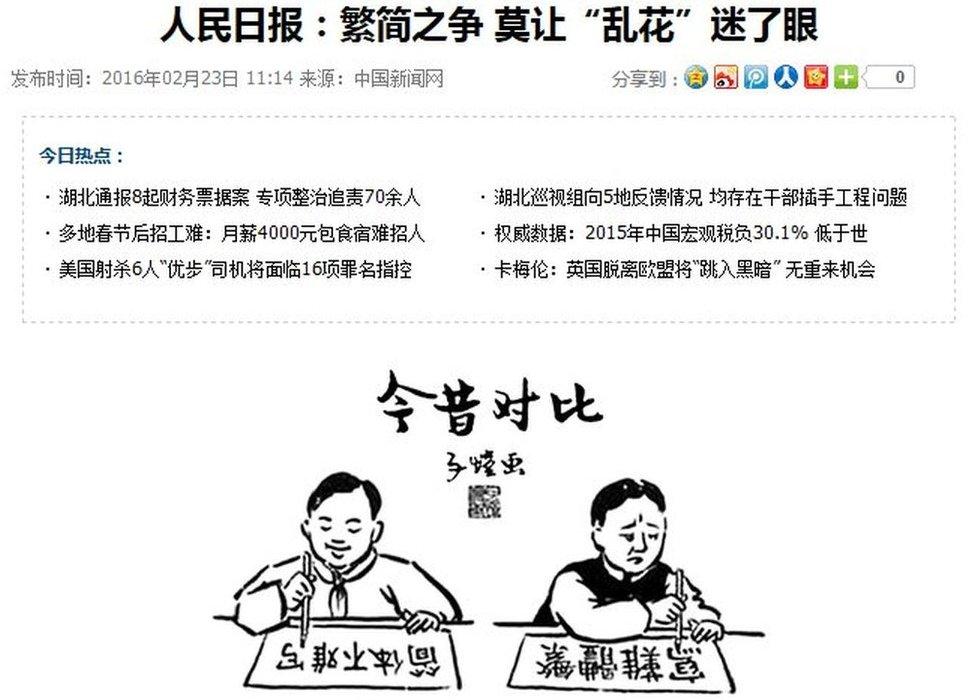
Mainland media ran the People's Daily commentary with a cartoon of people writing in simplified and traditional script

Juliana Liu, BBC News, Hong Kong
There is perhaps no issue more integral to the identity of Hong Kong people than their use of the Chinese language: spoken Cantonese with traditional written characters.
That's why a move to change the written script used in a prime-time news bulletin, even if it is a Mandarin-language programme, has caused so much anger.
Pro-democracy lawmaker Claudia Mo has written a protest letter to TVB. She admits the broadcaster hasn't violated any rules.
But she says the move is part of an obvious plan to turn Hong Kong into a mainland Chinese city.
"If you want to kill a city, the first thing you do is to kill the language," she tells me.
She and other political activists believe if they do not protest the decision now, other television programmes may be next.

The move comes amid growing tensions in the city, which saw widespread pro-democracy protests in 2014, over growing social and political influence from mainland China.
Earlier this month violence erupted in the city's working-class neighbourhood of Mong Kok when authorities tried to clear illegal food hawkers, who are seen as an integral part of local culture.
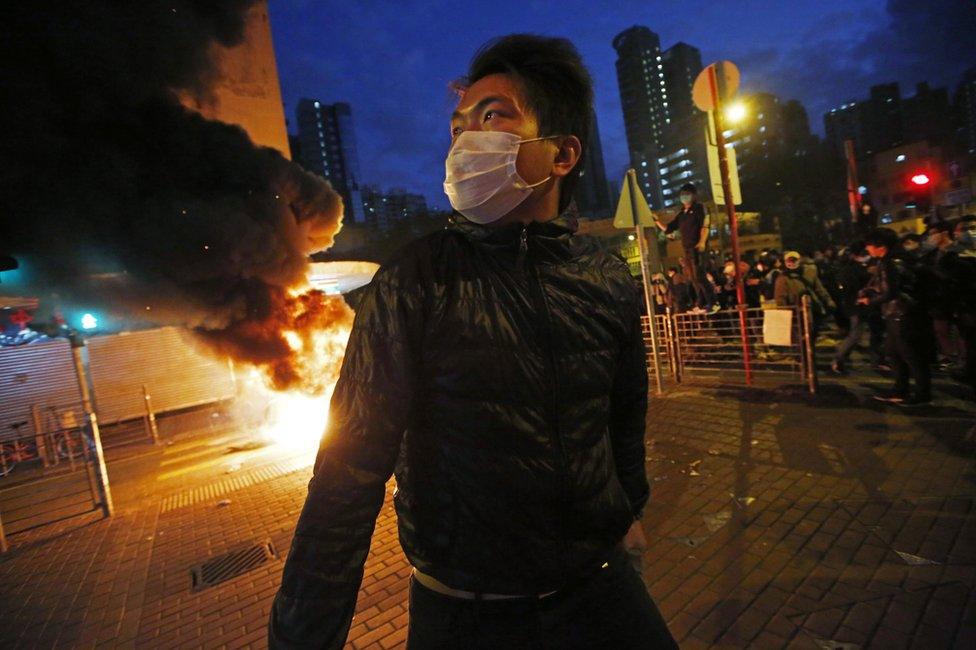
Protesters lit fires on the roads during the Mong Kok clashes
Several activists associated with the city's so-called localist movement have been arrested and charged with rioting this year.
The movement champions greater autonomy for Hong Kong and protection against the perceived dilution of the city's identity.
- Published23 February 2016
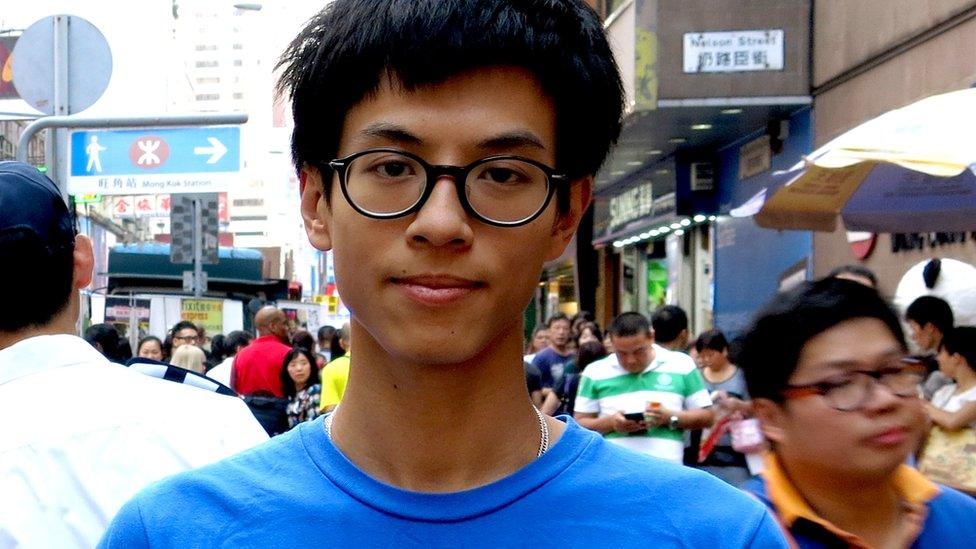
- Published11 February 2016
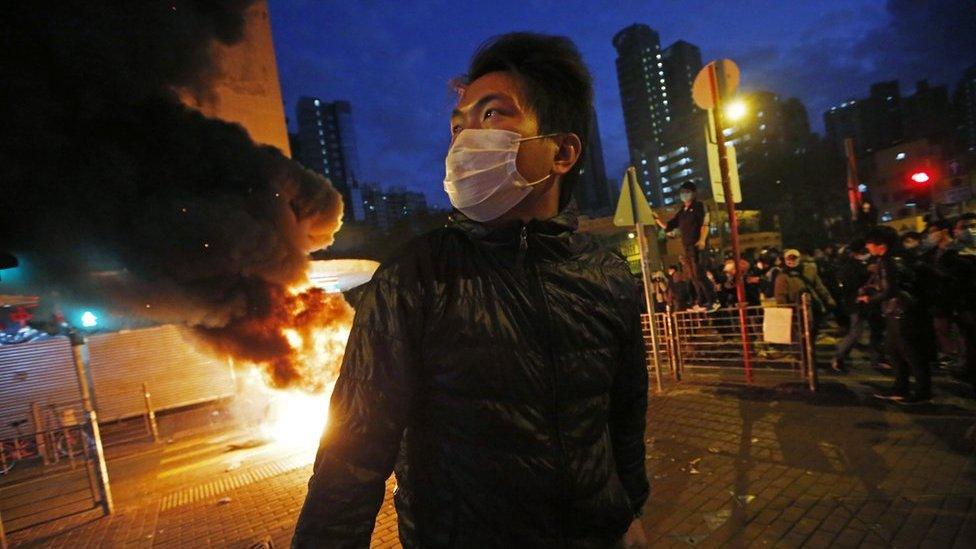
- Published9 February 2016
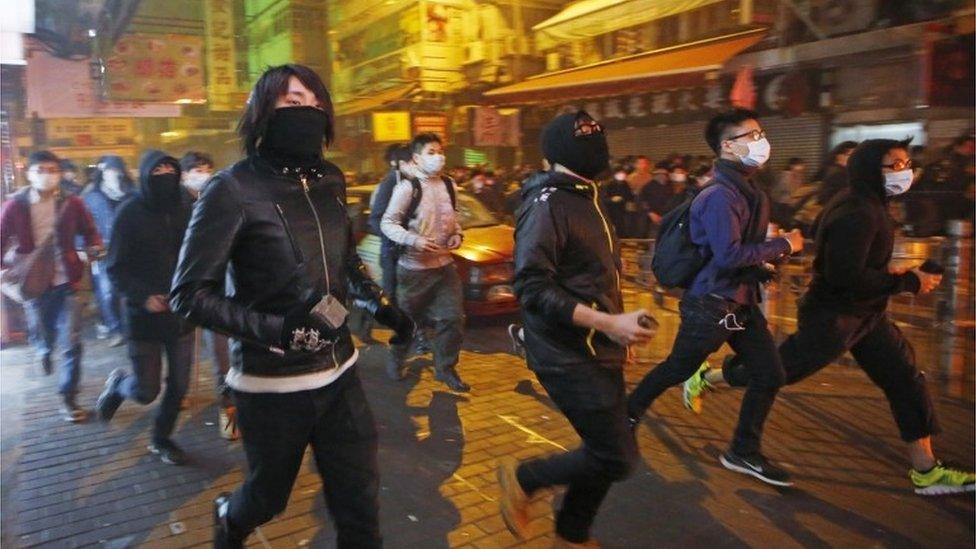
- Published18 June 2015
